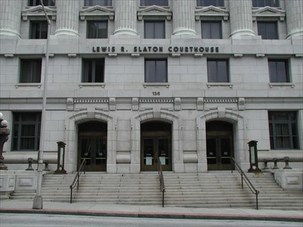|
0 Comments
A common question in DUI cases is: "Can I use a first offender plea to a DUI?'
The answer to that question is "No." The provision that specifically forbids a first offender plea to a DUI charge in Georgia is included in O.C.G.A. 42-8-60(j)(10) listed at the very bottom below: (j) The court shall not sentence a defendant under the provisions of this article who has been found guilty of or entered a plea of guilty or a plea of nolo contendere for: (1) A serious violent felony as such term is defined in Code Section 17-10-6.1; (2) A sexual offense as such term is defined in Code Section 17-10-6.2; (3) Trafficking of persons for labor or sexual servitude as prohibited by Code Section 16-5-46; (4) Neglecting disabled adults, elder persons, or residents as prohibited by Code Section 16-5-101; (5) Exploitation and intimidation of disabled adults, elder persons, and residents as prohibited by Code Section 16-5-102; (6) Sexual exploitation of a minor as prohibited by Code Section 16-12-100; (7) Electronically furnishing obscene material to a minor as prohibited by Code Section 16-12-100.1; (8) Computer pornography and child exploitation as prohibited by Code Section 16-12-100.2; (9) (A) Any of the following offenses when such offense is committed against a law enforcement officer while such officer is engaged in the performance of his or her official duties: (i) Aggravated assault in violation of Code Section 16-5-21; (ii) Aggravated battery in violation of Code Section 16-5-24; or (iii) Obstruction of a law enforcement officer in violation of subsection (b) of Code Section 16-10-24, if such violation results in serious physical harm or injury to such officer. (B) As used in this paragraph, the term "law enforcement officer" means: (i) A peace officer as such term is defined in paragraph (8) of Code Section 35-8-2; (ii) A law enforcement officer of the United States government; (iii) An individual employed as a campus police officer or school security officer; (iv) A conservation ranger; and (v) A jail officer employed at a county or municipal jail; or (10) Driving under the influence as prohibited by Code Section 40-6-391.
Conditional Discharge and Pre-trial diversion for Possession of Marijuana in Georgia Conditional Discharge: Under Georgia law O.C.G.A. 16-13-2, a person who is found to be in possession of less than one ounce of marijuana may be eligible to have the charge dismissed without an adjudication of guilt, or no conviction for possession of drugs. The statute says: "the court may without entering a judgment of guilt and with the consent of such person defer further proceedings and place him on probation upon such reasonable terms and conditions as the court may require, preferably terms which require the person to undergo a comprehensive rehabilitation program, including, if necessary, medical treatment, not to exceed three years, designed to acquaint him with the ill effects of drug abuse and to provide him with knowledge of the gains and benefits which can be achieved by being a good member of society. Upon violation of a term or condition, the court may enter an adjudication of guilt and proceed accordingly. Upon fulfillment of the terms and conditions, the court shall discharge the person and dismiss the proceedings against him. Discharge and dismissal under this Code section shall be without court adjudication of guilt and shall not be deemed a conviction for purposes of this Code section or for purposes of disqualifications or disabilities imposed by law upon conviction of a crime. Discharge and dismissal under this Code section may occur only once with respect to any person." Pre-trial Diversion: Pre-trial diversion is a different statute and method of disposing of possession cases without the use of the conditional discharge statute. Under O.C.G.A. 15-18-80, prosecutors are authorized to create and administer a Pretrial Intervention and Diversion Programs. The prosecutor may require the defendant to have a drug and alcohol evaluation, complete community service, and other requirements such as payment of a fee to be in the program. One important factor and decision in deciding whether or not to enter into a pre-trial diversion program is: "What will be the final result or disposition of the case?" The goal is to have the possession charges dismissed at the conclusion of the pre-trial diversion program. It is important to obtain a copy of the court's Order dismissing the charges upon completion of the program. Your case may also be eligible for expungement or record restriction if the case is dismissed after completion of the program. This is important because access to an individual's criminal history record information, including any fingerprints or photographs of the individual taken in conjunction with the arrest, shall be restricted under certain provisions of the record restriction statute. Case summary and example of the use of the pre-trial diversion statute Client was in an area of town that he is unfamiliar with and pulls into a shopping center parking lot to check his Google Maps to determine where he is and find the directions to his hotel. Once client has plugs the directions into his phone and leaves the parking lot, he is pulled over for no headlights. Officer states that he smells marijuana and asks client if there is any marijuana in the vehicle. Client tells the officer that there is a small amount of marijuana located inside of a pill bottle in the back seat of the car. Client is arrested for possession of marijuana less than an ounce and a headlight violation. At court, client's attorney is able to negotiate client's entry into the pre-trial program and the prosecutor requires: a drug and alcohol evaluation, 20 hours of community service, and payment of a fee in the amount of $250 to be included in the program. Client completed all of the terms of the pre-trial diversion program and his attorney requests a copy of the Order dismissing the charges. Because client completed all of the terms he is eligible for record restriction/many times referred to as expungement of his drug possession charges. This is helpful so that future employers or other entities will not see a drug possession charge on his record during criminal background checks. This case was handled by Attorney Bill Hardman.
The 30-day letter and Georgia Temporary Driving Permits in Georgia DUI cases
NOTICE** This letter was formerly referred to a the "10-Day Letter" in Georgia DUI cases. The Georgia law changed on July 1, 2017, with regards to the options and procedures for appealing administrative suspensions and options of drivers accused of DUI in Georgia. NEW GEORGIA LAW as of July 1, 2017: If you refuse to take a requested State-administered chemical test (blood, breath, urine, or other bodily substance) after being arrested for DUI, then your Georgia driver's license or privilege to drive in the State of Georgia may be suspended for a minimum period of one year. Once you have been arrested and received a DDS Form 1205, there are three options that may be available to you: 1) Do Nothing If you do not request an appeal hearing (30-day letter) or Ignition Interlock Device Limited Permit: If you do essentially are arrested and "do nothing," your DDS Form 1205 will serve as your driver's license for 45 days. On the 46th day after your arrest, you Georgia driver's license or privilege to drive in the State of Georgia (if you have an out-of-state license) will be suspended for one year. If you refused the requested test, you will not be eligible for any type of limited driving permit. An administrative license suspension permit may be available to you if you submitted to the requested test and have not been subject to an administrative license suspension within the last 5 years. There are also other factors that may affect your ability to obtain an administrative license suspension permit. 2) The Appeal Option The appeal option is what was previously referred to as the 10-day letter, or now the 30-day letter, which is requesting a hearing in front of an administrative law judge in the Georgia Office of State Administrative Hearings Court to challenge the suspension of your license. There is a $150 fee to request this hearing. Once you request this hearing, your license suspension will be stayed (put on hold) until your hearing is conducted. The issues addressed in this hearing are as follows: a) Whether the arresting officer had reasonable grounds to believe that you were driving or in actual physical control of a moving vehicle while under the influence of alcohol and were lawfully placed under arrest for DUI; b) Whether at the time of the request for the tests or tests, the officer informed you of your implied consent rights and the consequence of submitting or refusing to submit to such test; c) Whether you refused the test, or if a test or tests were administered and the results indicated an alcohol concentration met or exceeded the applicable "per se" limits of 0.08 grams or more for drivers age 21 and older, 0.02 for drivers under the age of 21, or 0.04 for operators of commercial vehicles; and, d) Whether the test or tests were properly administered by an individual possessing a valid permit issued by the Division of Forensic Sciences of the Georgia Bureau of Investigation on an instrument approved by the Division of Forensic Sciences or a test conducted by the Division of Forensic Sciences. **Note: If you request an appeal hearing with a 30-day letter or in person at a Georgia DDS facility, you will have waived your right to an Ignition Interlock Device Limited Permit. See Below. 3) Request an Ignition Interlock Device Limited Permit The last option is to request an ignition interlock device limited permit from DDS. The ignition interlock device requires that you to blow into the device to start your vehicle. You must request this option within 30 days of the date of your arrest. If you refused the requested test from the arresting officer (blood, breath, urine or other bodily substance), and you choose the ignition interlock device limited permit, you will have to maintain the device for 1 year. You will have to pay to have it installed, monitored daily, calibrated, inspected, and finally removed from your vehicle for the entire year. Even if you are found not guilty at trial, you will still have to keep the interlock device installed on your car. If you took the test but tested above the legal limit, then you will have to keep the ignition interlock device for at least 4 months. This option to request an ignition interlock device limited permit is not available if: a) you have been convicted of DUI within the past 5 years; b) you are under 21 years old; c) you do not have a Georgia license; and, d) you have any other suspension, cancellation, denial, or revocation of your Georgia license. **Note: If you have a Commercial Driver's License, and you request this limited permit, your CDL qualification will be downgraded during the period of your suspension.
Many people accused of DUI in the State or Georgia will ask, "Can I enter a Nolo plea in my DUI case?"
The short answer is "YES" if, and only if, the court is willing to accept the plea after all the defendant meets all of the statutory requirements. O.C.G.A. 40-6-3901.1 The Georgia Code Section that explains the requirements a defendant must meet to enter a nolo plea to a DUI case in Georgia is O.C.G.A. 40-6-391.1. You can read the entire statute here: http://law.justia.com/codes/georgia/2010/title-40/chapter-6/article-15/40-6-391-1
One reason that a defendant may request that the court accept his or her nolo plea in a DUI or any criminal case is that the defendant would like to dispose of his or her criminal case and is willing to accept the court's punishment even if the defendant does not believe that they are guilty of the crimes as charged. Further, in any case that involves an accident where another party's property is damaged or another party is injured, the injured party will generally have 2 years to file a tort action (personal injury or civil case) against the defendant for damages money and costs that may be attributed to the defendant. Even if a person is charged in a criminal case related to any such accident, the defendant may not believe he or she is the cause the accident. Because the defendant's criminal case is likely to come to court before any such tort action, the defendant may elect to enter a nolo plea to dispose of the criminal case and accept such punishment without entering a guilty plea to the charges against him/her. Entering a guilty plea in the criminal case is tantamount to an admission of guilt and may be used in a later civil case against the defendant to show that he/she was liable for the cause of the damage to property or injuries to the other party. Penalties after a nolo plea to DUI One KEY CONSIDERATION a defendant should consider before entering a nolo plea to DUI in Georgia is that the Department of Driver's Services treats a nolo plea the same as a guilty plea as far as driver's licenses suspensions are concerned. If you enter a nolo plea you will be subject to the same driver's license suspensions as you would if you entered a guilty plea in the case. The court may also impose the same penalties as they would normally impose if the defendant had plead guilty in the case. In summary, if you are considering entering a plea to a Georgia DUI case, you need to speak with a Georgia attorney who is familiar with the DUI laws and who can advise you of whether or not such a plea may or may not benefit you in your case.  Client was charged with failure to maintain lane and DUI less safe. Client was sitting in her car during a large storm on the side of the road in Fulton County when officers approached to ask why she was stopped on the side of the roadway. Officers claimed that there had been a report of driver failing to maintain lane earlier in the evening. Client refused to perform the voluntary field sobriety evaluations due to the fact that it was pouring rain. Officers claimed they noticed an odor of an alcoholic beverage. There were no other manifestations of impairment shown in the arrest video of client. Attorney was told by the police department that the officer was no longer employed in Fulton County. After obtaining the officer's training and employment records, attorney determined that the officer was employed in Fulton County and in the same position as he was on the night of arrest. Through his investigation attorney determined that the only offer of proof that client had been driving erratically at any time was the statement of a third party witness. No law enforcement had witnessed client driving at any time. The elements of the offense of driving under the influence in Georgia is that the State must prove beyond a reasonable doubt that the accused was less safe (or had a blood alcohol level of .08 grams or more) to drive because of their consumption of alcohol and in actual physical control of a moving vehicle within three hours after such consumption. After a pre-trial conference with the prosecutor to explain all of the difficulties in proving the State's case, client's charge was reduced to one count of reckless driving and the failure to maintain lane charge was dismissed. Once the fine is paid and the other conditions of the sentence are completed client's probation terminates and the case is over. This case was handled by Attorney Bill Hardman.
|
AuthorBlog posts by Bill Hardman at Georgia DUI and Criminal Law Archives
April 2024
Categories |
- Home
- Do I need a 30-Day Letter in my DUI Case?
-
Location of your case
- Enter the location of your case
- Athens DUI Lawyer
- Atlanta DUI Lawyer
- Banks County DUI Lawyer
- Baldwin, GA DUI Lawyer
- Barrow County DUI Lawyer
- Blue Ridge DUI Lawyer
- Buford DUI Lawyer
- Clayton County DUI Lawyer
- Clayton Georgia DUI Lawyer
- Cobb County DUI Lawyer
- Cumming DUI Lawyer
- Dahlonega DUI Lawyer
- Dekalb County DUI Lawyer
- Flowery Branch DUI Lawyer
- Fulton County DUI Lawyer
- Duluth DUI Lawyer
- Fannin County DUI Lawyer
- Gainesville DUI Lawyer
- Gwinnett County DUI Lawyer
- Hall County DUI Lawyer
- Lawrenceville DUI Lawyer
- Lumpkin County DUI Lawyer
- Newnan DUI Lawyer
- Oakwood DUI Lawyer
- Smyrna DUI Lawyer
- Rabun County DUI Lawyer
- Roswell DUI Lawyer
- Statham DUI Lawyer
- Suwannee DUI Lawyer
- White County DUI Lawyer
- Winder DUI Lawyer
- Georgia DUI and Criminal Law Updates
- Contact
- DUI Cases In Georgia
- Ask Us About Your Case
- Traffic tickets
- Is my Georgia Driver's License suspended now?
- Drug Possession in Georgia
- Car Wreck/Personal Injury
- City or County of DUI arrest
- About
- Hall County BUI Lawyer
- Important Georgia DUI Laws
William S. Hardman, Jr., P.C.
417 Green Street
P. O. Box 438
Gainesville, GA 30503
Phone 770-530-1164
Email: [email protected]
No information contained on this website is to be construed as legal advice in your case. Please consult with a licensed Georgia attorney before making any legal decisions in your case.
417 Green Street
P. O. Box 438
Gainesville, GA 30503
Phone 770-530-1164
Email: [email protected]
No information contained on this website is to be construed as legal advice in your case. Please consult with a licensed Georgia attorney before making any legal decisions in your case.
©2022 William S Hardman Jr. Attorney at Law | All Rights Reserved





 RSS Feed
RSS Feed
